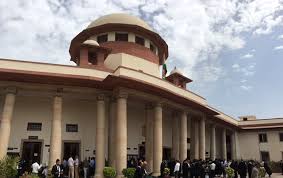This is a petition under Section 11(6) of the Arbitration and Conciliation Act, 1996 (for short, “the Act 1996”) filed at the instance of a company based in Switzerland and engaged in the business of design consultancy seeking appointment of an arbitrator (Para 1)
The Clause 53 read with Clause 55 of the General Conditions of Contract (hereinafter referred to as “GCC”), which forms part and parcel of the Contract between the petitioner and the respondent, set out the Arbitration Agreement. (Para 7)
It is the case of the petitioner that instead of appropriately responding to the aforesaid notice of arbitration, the respondent issued a letter dated 09.05.2022, terminating the Contract alleging non-compliance of work and nonfulfilment of the contractual obligation. (Para 9)
In such circumstances referred to above, the petitioner has preferred the present application for appointment of an arbitrator invoking Section 11(6) of the Act 1996. (Para 10)
The learned counsel appearing for the respondent vehemently submitted that the present petition deserves to be outright rejected as the petitioner has failed to comply with the two pre-conditions: (i) the predeposit of 7% of the claimed amount and (ii) failure on the part of the petitioner to approach the Principal Secretary/Secretary (Irrigation), Government of Uttarakhand for appointment of an arbitrator as provided under Clause 55 of the Contract. (Para 16)
WHETHER THE VALIDITY OF THE PRE-DEPOSIT CONDITION AS CONTAINED IN CLAUSE 55 OF THE AGREEMENT CAN BE LOOKED INTO AND DECIDED ON THE ANVIL OF ARTICLE 14 OF THE CONSTITUTION IN A PETITION UNDER SECTION 11(6) OF THE ACT 1996? (Para 69)
In the case of contracts between government corporations/State-owned companies with private parties/contractors, the terms of the agreement are usually drawn by the government company or public sector undertakings. Government contracts have broadly two kinds of arbitration clauses, first where a named officer is to act as sole arbitrator; and second, where a senior officer like a Managing Director, nominates a designated officer to act as the sole arbitrator. No doubt, such clauses which give the Government a dominant position to constitute the Arbitral Tribunal are held to be valid. (Para 93(17))
We also looked into a very lucid and erudite judgement on the issue of unconscionable pre-condition in the arbitration agreement (Para 95)
The Supreme Court of Canada held the aforesaid pre-condition to be unconscionable and unenforceable by a majority of 8:1. (Para 97)
This Court has often described the purpose of unconscionability as the protection of vulnerable persons in transactions with others (Para 97(60))
In view of the aforesaid discussion, we have reached to the conclusion that we should ignore the two conditions contained in Clause 55 of the GCC, one relating to 7% deposit of the total amount claimed and the second one relating to the stipulation empowering the Principal Secretary (Irrigation) Government of Uttarakhand to appoint a sole arbitrator and proceed to appoint an independent arbitrator. (Para 102)
We appoint Mr. V.K. Bist, the Former Chief Justice of the High Court of Sikkim to act as the sole arbitrator. The fees of the arbitrator including other modalities shall be fixed in consultation with the parties. (Para 104)
SUPREME COURT OF INDIA
2023 STPL(Web) 403 SC
2023 INSC 976
Lombardi Engineering Limited Vs. Uttarakhand Jal Vidyut Nigam Limited
Arbitration Petition No. 43 of 2022-Decided on 6-11-2023
https://stpllaw.in/wp-content/uploads/2023/11/2023-STPLWeb-403-SC.pdf







